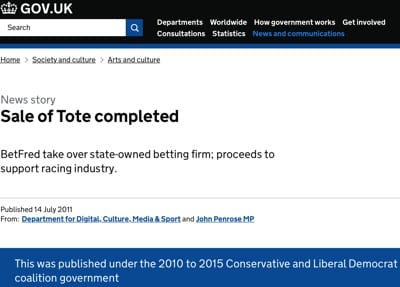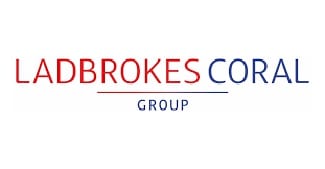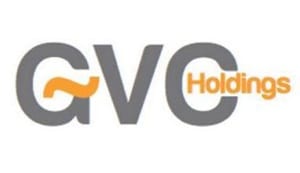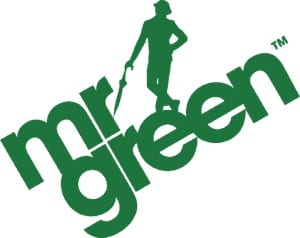 The world of bookmaking is just like any other major business, complete with big companies that rule the roost and smaller ones that are looking for their own slice of the pie. As with any corporate world, the larger bookmakers are constantly competing with each other for your business and sometimes one of the best ways of ending that competition is for the companies to merge together to create a gambling monolith.
The world of bookmaking is just like any other major business, complete with big companies that rule the roost and smaller ones that are looking for their own slice of the pie. As with any corporate world, the larger bookmakers are constantly competing with each other for your business and sometimes one of the best ways of ending that competition is for the companies to merge together to create a gambling monolith.
It’s also not uncommon for a smaller company to think outside the box in terms of winning your business, creating a model that the larger bookies would consider too risky to be worth trying. If it works, however, then the larger companies have the financial clout to acquire the smaller ones in order to take over their intelligent business-winning model. These are just some of the reasons why mergers and acquisitions happen, of course, so on this page we’ll be taking a closer look at some of the biggest and best examples.
Why Mergers Started Happening
The first question that you might want an answer to when considering the mergers that have taken place in the gambling industry over the years is why they happened in the first place. After all, bookmakers have existed alongside each other for decades without feeling the need to try to impose on each other’s patch. In fact, here’s a look at the rough founding dates of the major movers and shakers of the bookmaking industry over the years:
- Ladbrokes: Founded in 1886, London offices opened in 1902
- Coral: Founded in 1926 with pitches at racecourses
- Totesport: Created by the government in 1928
- William Hill: Founded in 1934
- BetVictor: Founded as Victor Chandler in 1946
- Jennings Bet: Founded in 1961
- Betfred: Founded in 1967, though Fred & Peter Done worked as runners for their dad’s shops before that
- Stan James: Set up in 1973 by Steve Fisher and James Holder
- Boylesports: Founded by John Boyle in 1982
- Paddy Power: Founded in Dublin in 1988
As you’ll no doubt have realised, a few of those names no longer have a presence of the high street, as they’ve either merged or been taken over by other bookmakers. The question of ‘why’ remains, though. Ladbrokes and Coral existed alongside each other from the moment that Joe Coral first pitched up at a racecourse in 1926, so why the need to come together as they did in 2016?
Online Betting Creates New Competition

The truth is that there are numerous reasons why bookies started to feel the necessity to join forces, but there’s one reason that stands out above all others: the explosion of online betting. In 2010, the industry was able to post a revenue of £5.6 billion, with that figure climbing to more than £7 billion four years later. Yet what the raw numbers alone don’t tell you is that the majority of the growth came through online betting, thanks in no small part to the development of mobile technology and betting apps.
As people were able to place a bet whether they were located in the pub or lying in the bath at home, the necessity to take to the high street in order to have a wager was removed. That’s not to say that no one enjoyed placing bets in person, but it’s certainly true that the physical bookmaker’s shop no long held the monopoly as the ability to bet online grew and developed. Indeed, a report by Price Waterhouse Cooper in 2017 suggested that the online gambling industry was worth $38 billion worldwide.
Add to that the increase in gaming duty on physical machines, as well as the expensive cost that naturally comes with buying bricks and mortar property and it’s no major surprise that bookmakers that would previously have considered each other to be rivals decided to look to see how they could work together to ensure that they could both survive on the high street. Sometimes that resulted in companies disappearing altogether, whilst other times it allowed them both to carry on operating online but removing the need to compete with each other.
Paddy Power & Betfair Merge
 Perhaps the best place to start in terms of looking at the big mergers in recent years is at the one that combines the old school and the new. Paddy Power was itself created out of a merger of three major players in the world of Irish bookmaking when David Power, Stewart Kenny and John Corcoran decided to combine their forty shops and rebrand, taking on the ‘Power’ of David Power because it was considered to be the best-known throughout Ireland. The addition of the ‘Paddy’ and the use of green in the new brand’s colours both seemed like easy decisions to make for a company that would be trading on its Irish heritage.
Perhaps the best place to start in terms of looking at the big mergers in recent years is at the one that combines the old school and the new. Paddy Power was itself created out of a merger of three major players in the world of Irish bookmaking when David Power, Stewart Kenny and John Corcoran decided to combine their forty shops and rebrand, taking on the ‘Power’ of David Power because it was considered to be the best-known throughout Ireland. The addition of the ‘Paddy’ and the use of green in the new brand’s colours both seemed like easy decisions to make for a company that would be trading on its Irish heritage.
The company moved into the UK at the turn of the millennium, seeing the number of shops in the UK grow to forty-five by then end of 2005. The UK shops sat alongside the one hundred and fifty shops operating in Ireland by the same period, meaning that they had the clout to start buying up smaller Irish bookmakers in the years that followed. By 2010, for example, they owned more than three hundred and fifty shops throughout Ireland, Great Britain and Northern Ireland.
Betfair, meanwhile, were the quintessential example of a thoroughly modern bookmaker. Founded by Edward Wray and Andrew Black in June 2000, they were a purely online offering from the get-go. A big part of the company’s appeal came in the form of their betting exchange, which allows customers to essentially bet against each other rather than against a bookmaker. In fact, they didn’t even launch their traditional sportsbook until 2012, happily seeing other bookmakers follow their exchange method instead.
Paddy Power had launched an online section to its operation in 2007 but they still felt as though they could take things further on that front, so a merger with one of the most prominent online betting companies seemed a sensible way forward. The merger was agreed in 2015 and by April of 2016, the newly formed Paddy Power Betfair confirmed that around three hundred and fifty jobs would be lost as a result of the merger.
The new company saw Paddy Power’s online presence gain the expertise of Betfair, whilst Betfair were able to start taking advantage of the Irish company’s physical shops. Customers of the online only company began to be able to pay money into their account in one of the shops and withdraw winnings in person too. It gave the two bookmaking powerhouses the advantages of the other’s operations, whilst also seeing them both gain a more solid footing in an ever-changing world. The deal also saw Paddy Power take overall charge thanks to their 52% shares compared to Betfair’s 48%.
Stan James Gets Split in Two
 Another interesting example of a business deal that takes into account the overwhelming importance of the online market to the world of betting was the splitting up of Stan James. The company had been formed in 1973 with a single shop and grew over the subsequent forty years to become a trusted name in the industry, but eventually they began moving their operation to have more and more of an online presence. This was demonstrated by a number of acquisitions that the company carried out, including the 2007 purchase of BetDirect and the 2008 purchase of betterbet.com.
Another interesting example of a business deal that takes into account the overwhelming importance of the online market to the world of betting was the splitting up of Stan James. The company had been formed in 1973 with a single shop and grew over the subsequent forty years to become a trusted name in the industry, but eventually they began moving their operation to have more and more of an online presence. This was demonstrated by a number of acquisitions that the company carried out, including the 2007 purchase of BetDirect and the 2008 purchase of betterbet.com.
That’s not to suggest that the company abandoned the high street side of its business altogether. In 2010, they bought twenty-seven shops belonging to Pagebet when they went bankrupt and in November 2016 they bought thirty-thirty-seven of the stores that Coral and Ladbrokes were forced to sell by the Competition and Marketing Authority. It came a year after Unibet bought Stan James’ online business for £19 million. The remaining high street shops then got a rebrand in the form of a change of name from Stan James to Megabet.
Betfred Buys The Tote
 In terms of purely high street shops, perhaps no merger had the same level of controversy as when Betfred won the tender to take over the Tote from the government. The Tote had been formed in 1928 by the government as a way to make money from the world of betting and had operated in the interest of the horse racing industry ever since. Yet there had been plans by the government to sell the organisation for years before they actually managed to do so. They put the right to the Tote out to tender before eventually choosing Betfred’s £265 million offer in 2011.
In terms of purely high street shops, perhaps no merger had the same level of controversy as when Betfred won the tender to take over the Tote from the government. The Tote had been formed in 1928 by the government as a way to make money from the world of betting and had operated in the interest of the horse racing industry ever since. Yet there had been plans by the government to sell the organisation for years before they actually managed to do so. They put the right to the Tote out to tender before eventually choosing Betfred’s £265 million offer in 2011.
One of the chief reasons for the controversy around the sale was the fact that many in the horse racing industry felt that Fred Done didn’t have the industry’s future in mind when he made the purchase. Instead, many felt that Done had his eye on the five hundred plus high street shops that the Tote boasted. The truth of that is something that many debated, though it’s certainly true that the shops being added to the five hundred that Betfred already owned went some way to making the company one of the largest in the UK in terms of physical shops.
It’s also the case that Done was less than pleased with how British racing felt he’d treated the sport over the years, going so far as to threaten to end sponsorship of races when the exclusivity deal that Betfred had to operate pools betting expired in 2018. When fifty-four courses decided to launch their own pools betting system, Done said that horse racing and Betfred would have to ‘learn to live without each other’. In the end, he didn’t do anything quite so dramatic, though the pools operation on British racecourses ended up being a far messier subject than many people realised it would be.
Coral & Ladbrokes Join Forces
 One of the biggest deals in betting industry history happened when Coral and Ladbrokes decided to join forces in 2016. As mentioned earlier, Ladbrokes and Coral had been competitors since Joe Coral opened his first pitch in 1926, but there had been a desire from the former to take over the latter long before it actually happened. Indeed, in 1998, Ladbrokes reached a deal with Bass plc, the parent company of Coral at the time, to buy the bookmaker for £363 million. The deal drew the attention of the Monopolies and Mergers Commission, however, who felt that it was anti-competitive.
One of the biggest deals in betting industry history happened when Coral and Ladbrokes decided to join forces in 2016. As mentioned earlier, Ladbrokes and Coral had been competitors since Joe Coral opened his first pitch in 1926, but there had been a desire from the former to take over the latter long before it actually happened. Indeed, in 1998, Ladbrokes reached a deal with Bass plc, the parent company of Coral at the time, to buy the bookmaker for £363 million. The deal drew the attention of the Monopolies and Mergers Commission, however, who felt that it was anti-competitive.
The result was that Ladbrokes were forced to sell the Coral part of the business, which it eventually did to a management buyout, with the exception of fifty-nine shops. Coral, meanwhile, acquired Eurobet in 1999 and was then bought by Gala for £2.18 billion in 2005. Ten years later and Ladbrokes were back to negotiate a possible merger with the Gala Coral Group, which would result in the formation of Britain’s biggest bookmaker. The company would boast around 4,000 shops, seeing it take over from William Hill as the country’s largest bookmaker.
One of the interesting things about the deal was that the companies decided to keep operating as separate entities, with the majority of the difference happening behind-the-scenes. Unsurprisingly, though, the Competitions and Markets Authority found a large number of areas where the new merger would see other bookmakers harmed. As a result, it was decided that somewhere between three hundred and fifty and four hundred shops would need to be sold if the merger was to be ratified. Those shops were, as mentioned elsewhere, bought by Betfred & Stan James.
GVC Buys Ladbrokes Coral
 Few things in betting are ever all that permanent, as demonstrated by the fact that Ladbrokes Coral had barely got to know each other as a new partnership when GVC Holdings decided to make a move to buy the newly formed company. There had been previous attempts to merge that had broken down because of disagreements over share prices and other such things, but the deal eventually went through in 2018.
Few things in betting are ever all that permanent, as demonstrated by the fact that Ladbrokes Coral had barely got to know each other as a new partnership when GVC Holdings decided to make a move to buy the newly formed company. There had been previous attempts to merge that had broken down because of disagreements over share prices and other such things, but the deal eventually went through in 2018.
GVC Holdings already had a significant stake in the world of online gambling thanks to its ownership of Foxy Bingo, PartyCasino and Sportingbet, but the merger with two of Britain’s best-known high street bookmakers made it a veritable industry behemoth. The deal was worth £3.2 billion initially, with that amount set to rise to £4 billion depending on whether or not certain circumstances happened. The high street stores of Ladbrokes and Coral remained in place, but it meant that the company was somewhat protected from the impact of the government’s decision to limit the maximum odds on Fixed Odds Betting Terminals to £2.
BetVictor Is Sold to Star Sport
 Anyone who watches any football will know all about BetVictor, thanks in no small part to the genuinely irritating adverts starring Paul Kaye. The company has also enjoyed numerous betting partnerships with Premier League clubs over the years, including both Chelsea and Liverpool. BetVictor started life as a physical bookmaker under the moniker of Victor Chandler, with the first pitch opening in 1946. The company is considered to be the driving force behind the British government’s decision to abolish the gambling tax in 2001.
Anyone who watches any football will know all about BetVictor, thanks in no small part to the genuinely irritating adverts starring Paul Kaye. The company has also enjoyed numerous betting partnerships with Premier League clubs over the years, including both Chelsea and Liverpool. BetVictor started life as a physical bookmaker under the moniker of Victor Chandler, with the first pitch opening in 1946. The company is considered to be the driving force behind the British government’s decision to abolish the gambling tax in 2001.
As the world of internet gambling grew, so too did BetVictor’s interest in that side of the business. As a result, their online presence became the biggest part of the business and the on street shops became few and far between. There were still a few around, though, but the company lost interest in them to the extent that they chose to sell their remaining pitches to Star Sports in 2015.
Star Sports was best known in the south of England when the deal went through, mainly in Brighton and the surrounding areas. The move to take over the shops of BetVictor gave them a degree more cachet, but it was a decision predominantly taken by BetVictor because of the company’s decision to concentrate fully on its online operation moving forward. It’s demonstrative, perhaps, of the extent to which more and more companies are seeing the British high street as being more trouble than it’s worth when compared to the explosion of online betting.
Online Mergers
 It’s worth offering a quick mention to the scores of online companies that merge on a seemingly regular basis. As you’ll no doubt have gleaned from this piece, the world of online betting is simultaneously hugely competitive but also something of a free-for-all. New companies pop up on a virtually daily basis, particularly because of the explosion of white label casinos and sportsbooks that allow businesses to open sites with little experience.
It’s worth offering a quick mention to the scores of online companies that merge on a seemingly regular basis. As you’ll no doubt have gleaned from this piece, the world of online betting is simultaneously hugely competitive but also something of a free-for-all. New companies pop up on a virtually daily basis, particularly because of the explosion of white label casinos and sportsbooks that allow businesses to open sites with little experience.
The result of that market saturation is that the bigger companies tend to buy up the smaller ones if it’s in their interest to do so. A good example of that is William Hill’s decision to buy online bookmaker Mr Green in 2018. That purchase was spurred on at least in part by the UK’s decision to leave the European Union, with Mr Green’s Swedish base offering the company a ready-made home in the EU.
The simple fact is that online mergers and acquisitions are far more common place than those that take place involving high street stores. That means that it’s a difficult topic to write about, given that they’re happening on a regular basis and would be difficult to keep up with. From larger deals, such as CVC Capital Partners’ decision to buy Sky Bet in 2015, through to smaller ones like LeoVegas buying Royal Panda, it’s a world in which companies change hands regularly and is therefore worthy of at least a brief mention.